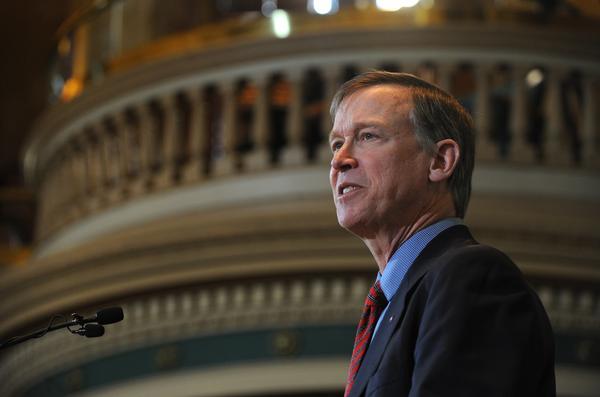Like many other states, Colorado’s political leaders must decide whether to accept the Medicaid expansion mandated by President Obama’s law at a time when their program’s enrollment is already above prior levels.
Some 200,000 more Coloradans are now poor enough to qualify for Medicaid than before the recession. The state’s Medicaid agency says it needs $185-million more from the state budget next year to meet the increased demand.
In the wake of the Supreme Court ruling allowing states to decline to expand Medicaid beyond those currently eligible, Colorado Gov. John Hickenlooper, a Democrat, has only said, “We will continue to operate within the law’s framework and with the General Assembly while making state-level decisions that work for everybody.”
Governor May Wait
State Rep. Cheri Gerou (R-Douglas County) says Hickenlooper is assessing whether Colorado can afford the expansion.
“There are currently about 650,000 Medicaid clients in Colorado, with about one in three babies born in the state being delivered through Medicaid. By 2017 there are expected to be between 750,000 and 1 million [in the program],” said Gerou. “That means that by 2017, one in five Coloradans will be on Medicaid. If we don’t get a handle on it, then it will start to crowd out our K-12 budget.”
Gerou says the economic downturn has given the state pause about expanding entitlements, recognizing that once people enter the program, they are unlikely to leave.
“The reason for the rise in Medicaid enrollment is because of the bad economy. People have lost jobs, and they’ve lost their health care. Plus, the state made it easier for people to enroll in Medicaid several years ago,” said Gerou. “So when it comes to expanding Medicaid, I don’t even know if we can afford what we already have.”
She maintains the governor may wait until after the election to make his decision.
“Gov. Hickenlooper has not said anything about whether or not he will expand Medicaid, and he’s not talking about it because so much could change between now and after the election,” she said.
State Faces a Fiscal Cliff
It would be a bad idea for the state to expand Medicaid, says Dave Kopel, research director and second amendment project director at the Independence Institute in Denver, Colorado. A period of down revenues is exactly the wrong time to expand entitlements, Kopel says.
“Expanding Medicaid in Colorado will push the state off a fiscal cliff. Traditional Medicaid is already crowding out much of the state’s budget for higher education and public school financing. Also, the administrative costs for the state will be significant,” said Kopel.
Kopel notes that although the federal government’s matching funds for the Medicaid expansion are tempting, they are scheduled to decline to 90 percent in 2020 and could fall even further in out years, with the state bearing more and more of the cost.
“The notion that the federal government will pay 90 percent of these costs in perpetuity when it is already $16 trillion in debt is naïve,” Kopel said.
Other States Also Concerned
Several states facing situations similar to Colorado’s are already considering avoiding expansion, according to Ilya Somin, associate professor of law and editor of the Supreme Court Economic Review at the George Mason University School of Law.
“Whether it makes sense for states to do the expansion now or not depends in part on their fiscal situation. But with many states already in serious fiscal difficulty, it is probably a risk for them, at the very least, to take on major new responsibilities,” Somin said.
For states that didn’t choose to challenge the Medicaid expansion before the Supreme Court—Colorado did not—the temptation of federal funding may be too much to resist, Somin says.
“Obviously some states may be attracted by the additional new federal funds offered by ObamaCare. It will be interesting to see which way the different states go on this, particularly the 26 that challenged the Medicare expansion in court,” said Somin.





